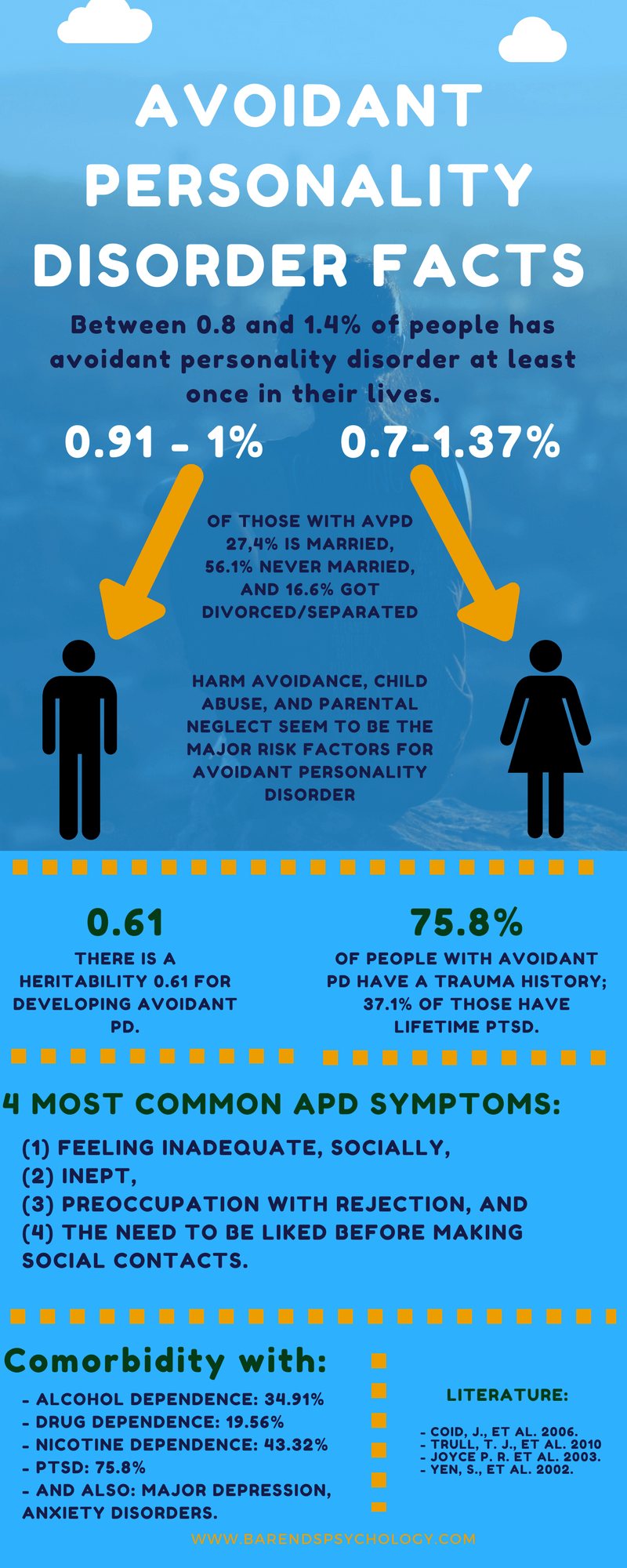Avoidant Personality Disorder: What Is It & How To Deal With It?

List of Contents
What is Avoidant personality disorder
Avoidant personality disorder (AVDP) makes an individual extremely shy which also induces a feeling of inadequateness and hypersensitivity to rejection. Such sensitivity may cause problems in social relationships or work place as any criticism from others could simply create anxiety and fearfulness.
This is the reason that avoidant personality disorder is often combined with other mental health conditions like social anxiety disorder. Interestingly, this disorder affects almost 2.5% of the population where men and women are equally affected.

Here is a list of common symptoms which could be associated with avoidant personality disorder.What Are The Common Symptoms Of Avoidant Personality?
Although the causes of avoidant personality disorder are still not known, researchers have claimed that genetic and environmental factors may play a role in causing the disorder. Other factors may include emotional criticism, lack of affection by parents or caregivers or abusive childhood.
Who Is At The Risk Of Avoidant Personality Disorder?
There is no way one can find out who develops AVPD and who doesn’t. Although those who have suffered from it were usually very shy in their childhood. However, not every shy person develops this disorder and mostly, the shyness goes away as the person grows older and starts learning to cope with the situations.
NOTE: that social anxiety disorder and AVPD share similar symptoms but AVPD could be considered as a more severe form of the condition.
How Is Avoidant Personality Disorder Diagnosed?
If any of the above-mentioned symptoms are evident in a human being, the healthcare provider will make sure to run all the tests and even find out the medical history. Various diagnostic tests could be expected to rule out physical illness as the cause of symptoms.
In case there is no physical reason for the symptoms then the person may be referred to the psychologist, psychiatrist or a healthcare professional who are well trained in treating the mental health illness. They use especially designed interview and assessment tools to find out if the person is dealing with AVPD.
Treatment Of Avoidant Personality DIsorder
It can be noted that avoidant personality disorder is hard to treat as the person going through may consider it as a general behavior and may not understand the need for asking help. Such people either become isolated or even use complete avoidance as the coping strategy.
However, if the therapy is started at the right time and is successfully applied then it can help in controlling symptoms and help the person to manage their anxiety properly. Remember, avoiding any disorder would never do any help!
1. Talk Therapy with inclusion of cognitive behavioral therapy, psychodynamic therapy or schema therapy in an individual manner may help the person to overcome the disorder. If not on an individual level, group therapy and social skills training may also be helpful in treating AVPD.

2. Cognitive behavioral therapy helps in turning the negative thoughts into positive ones with the assistance of a therapist.
3. Schema therapy is another one built on the lines of CBT as well as a number of other therapeutic techniques. This is based on ‘limited reparenting’ where the client expresses his childhood needs while learning to develop a healthy parental voice.
4. Medications are prescribed based on the symptoms like depression or anxiety as there are no specific medications for avoidant personality disorder. For example, antidepressants could be helpful in improving symptoms of anxiety, depression and anhedonia.

To connect with a counselor, psychologist or therapist, send us a message at info@calmsage.com and we will help you connect with one. Or else learn about best video therapy services to meet an online therapist.
Self Coping Strategies For Avoidant Personality Disorder

Keep your relations with friends and family members well-maintained and informed so that they can understand what you are going through and help all the way. With that, find your ways to keep a safe distance from drugs, smoking, alcohol or other toxic substances. With that, make sure that you express your mind to your therapist completely for a better understanding and recovery process.
Conclusion
We are hopeful that you have understood about avoidant personality disorder clearly and would follow a path to ask for help. Also, try following the instructions provided by your mental health service provider for quickest recovery.




















